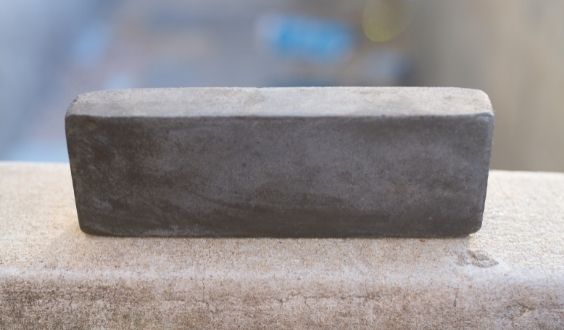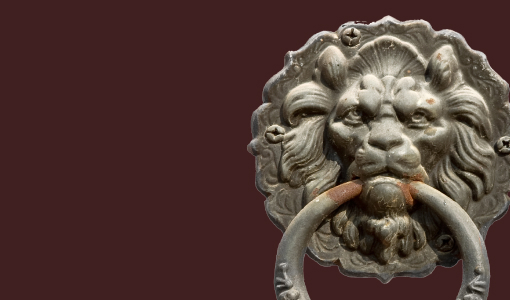Important Things to Consider When Sharpening a Sword
To have a sword become dull is an unfortunate event for any sword owner. When a sword is sharpened poorly, it may not only cause damage to the sword but could also injure the person who is trying to sharpen it.
This is why it is important to always keep your swords sharp.
Before attempting to sharpen your sword though, one should consider some important points about the sword sharpening process that will help prevent accidents and ensure that the sword is as sharp as intended.

Why is it Important to Sharpen a Sword?
One should consider the reason why sword sharpening is necessary for any sword. A sword can become dull due to numerous factors. For instance, a sword owner could hit the sword against an object that was harder than the sword steel before being able to see his or her mistake.
The sword would have been subjected to immense pressure which can cause it to deform creating minute fractures along the blade steel. This then renders the sword ineffective, whether by a fraction or totally.
The other reasons why a sword becomes dull are due to weathering and poor care of the sword edge itself. Without proper care, contaminants such as rust will be present on the sword edge which will build up overtime.
The rust makes it difficult for one’s sword skills to hold up against stronger swords if they do not use quality sharpening techniques that will hone and polish the sword edge.
Sharpening a sword also shows respect and reverence for the weapon. Even if it is only on display, you want your sword to be shown at its best quality and in a condition that will last the test of time.
Important Things to Consider When Sharpening a Sword
Sharpening or Polishing
Sword owners should consider if their sword needs sharpening or if it simply requires some polishing. By making this distinction at the beginning, sword owners can save themselves time and effort by avoiding unnecessary sharpening.
Swords are often made of softer metals that are designed to bend slightly when they come into contact with other swords on the battlefield.
While these swords will likely still be able to deliver a deadly blow, they may not slice as neatly through an opponent’s armor or flesh. These steel blades typically require more frequent sharpening than other types of metal used for making swords.
What to Do When a Sword is Dull
One of the first things one should do before sharpening a sword is to make sure there are no other people who can be hurt during the process nearby.
While this sounds obvious, many injuries occur when those around assume they can go about their routine tasks while someone else works on their sword without supervision. It takes only a few seconds for an accident to occur, so it is best not to take the chance.
The main mistake sword owners make when it comes to sword sharpening is trying to sharpen its sword by using abrasive techniques such as grinding or sanding the steel blade. This will cause extensive damage that may not only ruin the sword but injure the sword owner during his attempt at sharpening his or her sword.
In order for one’s sword skills to hold up against stronger foes, one should learn how to properly hone and polish their sword edge which can be done in two ways:
- Use an abrasive stone with a coarse grit number between 800-1000 and hone under running water
- Use a ceramic or diamond rod with a fine grit number in the range of 1000-3000 and hone under running water.

How Often Should a Sword Be Sharpened?
As sword skills improve, so should sword sharpening techniques to maintain sword edge geometry and keep one’s sword skills up to par. One can determine how often his or her sword needs to be sharpened by observing his or her sword skill usage with it.
If one feels that he or she is overusing certain sword maneuvers such as cuts and thrusts, then they should sharpen their sword more often. If one feels that his or her sword is performing at optimum levels, then they may opt not to sharpen their sword for a while because this means their skills are sufficient enough to where they do not need to sharpen their sword frequently.
For some swords though, like katanas, it may be in your best interest to send it to a professional instead if you are not comfortable with the process. This applies to sword owners who are attempting to sharpen their swords for the first time as well.
Professional sword honing services can teach you how hone and polish your sword edges correctly. These hones and polishers know how to prevent extensive damage from occurring along the sword’s surface while honing and polishing which will yield a sword that is suitable for sword combat.
What Tools are Used for Sharpening Swords?
One should consider what tools he or she has at their disposal when sharpening a sword. Ideally, sword owners should have sword oil that is specifically made for the sword type in order to reach the blade steel beneath the surface of the sword edge which will help prevent rust from accumulating on it.
In addition, sword owners should use a sword stand to hold the sword up while sharpening it so that one does not accidentally get his or her hands near it while its being sharpened and also so he or she can properly hone and polish the sword edge under running water.
Keep Your Swords Sharp
It’s essential to take the time to sharpen your sword. You not only honor the weapon and ensure its long-lasting quality, but you will also be able to get more out of your blade when you follow these tips and tricks for sharpening a sword.
Most important of all is the fact that sharpening a sword is a form of discipline that transcends to other areas of life.
Remember to keep your swords sharp always no matter what you use it for.
You might also wanna check WHAT YOU NEED TO KNOW ABOUT THE AUTHENTIC KATANAS SOLD ON THE MARKET.
